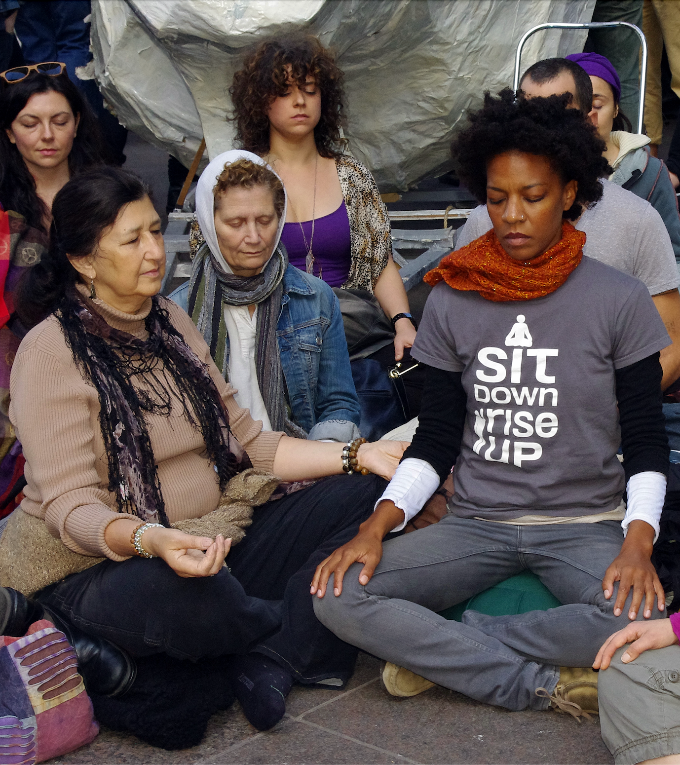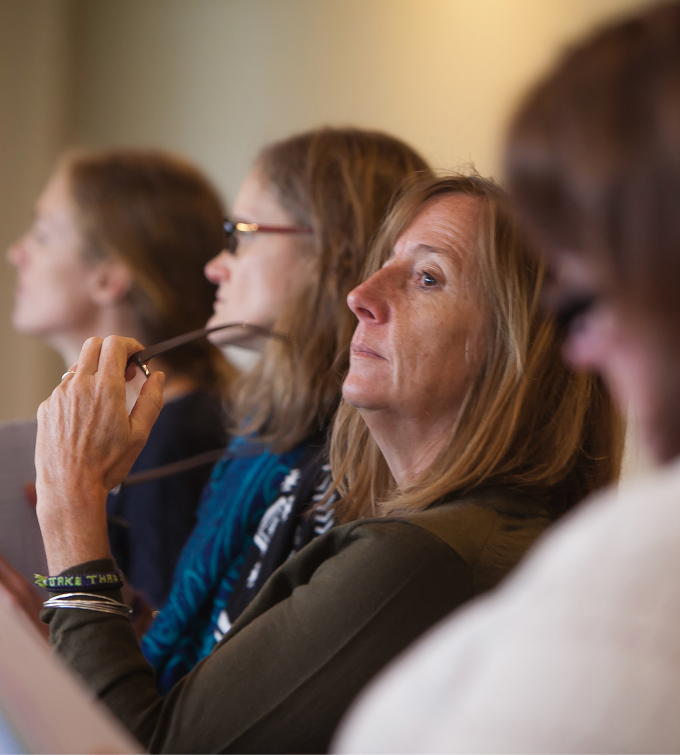August 1, 2025
Civics
How mindfulness can support deeper engagement with civic and social challenges

Day 31 Occupy Wall Street, Liberty Park, Sunday, October 16, 2011 Photo by David Shankbone
Pavel Chvykov is an interdisciplinary researcher with a background in physics, complexity science, artificial intelligence, and the theoretical foundations of mindfulness. His work explores how complex systems and patterns emerge in both natural and human-made networks. In this article, he traces the evolution of mindfulness from its Buddhist origins in sati—a holistic practice of awareness and ethical discernment—to its present-day form as a secular tool for stress reduction.
Chvykov is concerned that in distilling mindfulness into evidence-based programs like Mindfulness-Based Stress Reduction (MBSR), it has been made more accessible but also more individualistic and goal-oriented.
In its original context, he says, sati was part of a larger system that included philosophy, ethics, community life, relationships, and care for the natural world. The practice was not focused solely on reducing stress, but was rooted in a way of life that emphasized compassion, ethical conduct, and interconnectedness.
He argues that Western adaptations often remove these communal and ethical elements, shifting the focus to individual wellness. In contrast, both traditional sati and complexity science highlight how individuals are shaped by—and in turn shape—their communities through ongoing interactions. Mindfulness, when practiced within this broader frame, can foster ethical discernment, compassion, and wisdom, not only for individuals but for communities as a whole.
Chvykov suggests that by integrating complexity science’s focus on interconnected systems with the ethical roots of mindfulness, we could reclaim these communal dimensions. Reframed in this way, mindfulness could support not just personal well-being but also stronger, more resilient communities that are capable of engaging with the challenges of civic and social life.
ARTICLE: Complexity Science Can Deepen Your Mindfulness Practice




